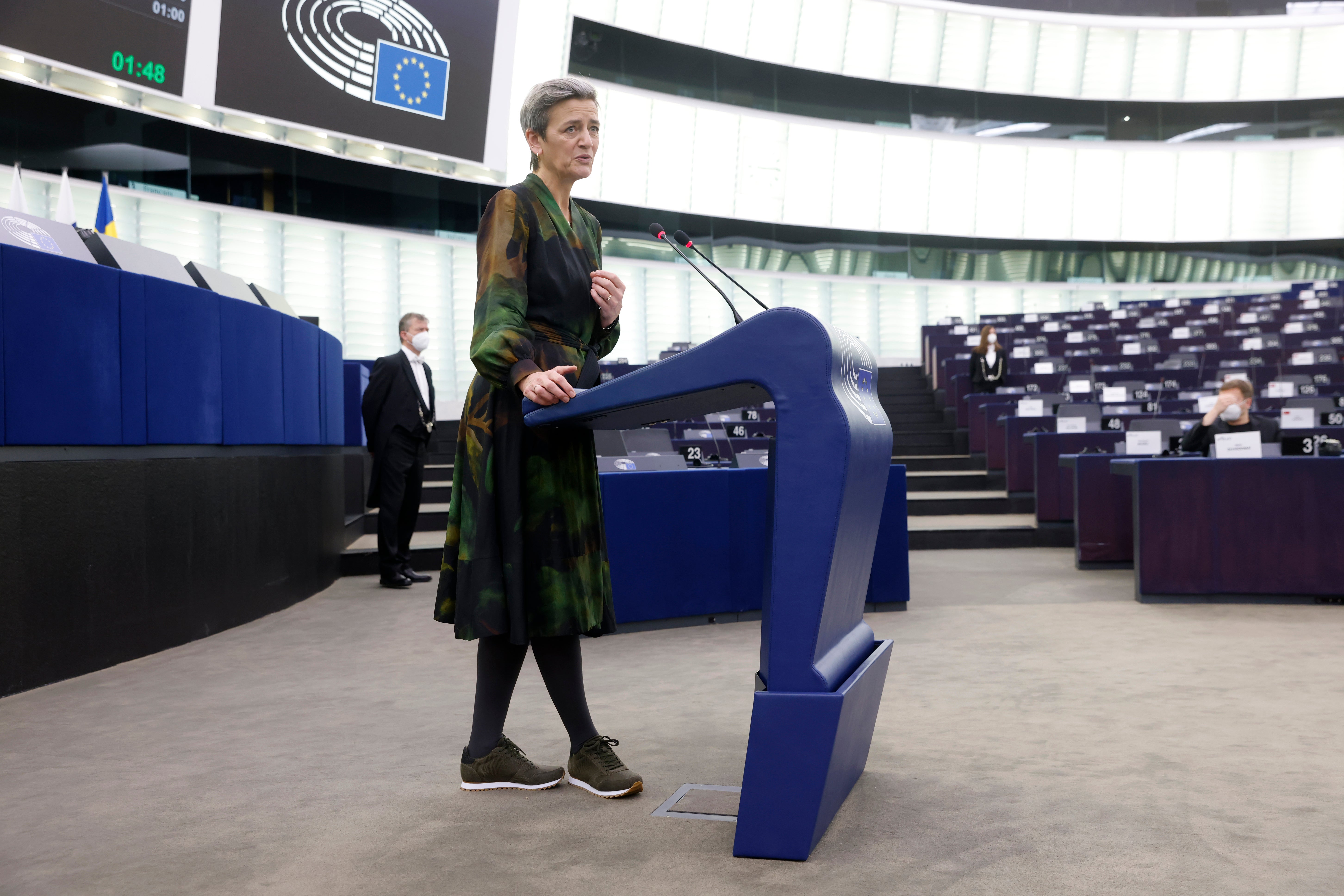EU plan for sweeping update of Big Tech rules gains momentum
The European Union’s ambitious plan to update its pioneering internet rules has gained momentum

Your support helps us to tell the story
From reproductive rights to climate change to Big Tech, The Independent is on the ground when the story is developing. Whether it's investigating the financials of Elon Musk's pro-Trump PAC or producing our latest documentary, 'The A Word', which shines a light on the American women fighting for reproductive rights, we know how important it is to parse out the facts from the messaging.
At such a critical moment in US history, we need reporters on the ground. Your donation allows us to keep sending journalists to speak to both sides of the story.
The Independent is trusted by Americans across the entire political spectrum. And unlike many other quality news outlets, we choose not to lock Americans out of our reporting and analysis with paywalls. We believe quality journalism should be available to everyone, paid for by those who can afford it.
Your support makes all the difference.The European Union’s ambitious plan to update its pioneering internet rules gained momentum Tuesday after a key committee passed measures requiring technology companies to better police content and lawmakers prepared to vote on regulations to rein in Big Tech
The 27-nation bloc has for the past year been drafting a sweeping overhaul of regulations for digital companies, aimed at making sure tech giants like Google and Facebook now renamed Meta treat rivals fairly and protect users on their platforms.
The rules, which have been the subject of fierce lobbying from the tech industry, look set for approval from lawmakers, though they still face tough negotiations next year with EU bodies. The regulations, and similar ones in the United Kingdom to curb harmful online content, show Europe's role as a pacesetter for regulating the tech industry as a global movement picks up pace following whistleblower Frances Haugen's allegations that Facebook put profits ahead of safety.
One set of EU rules, the Digital Services Act, aims to make tech companies more responsible for content on their platforms. The lead committee working on the rules said Tuesday that it approved amendments before sending the draft to the full EU Parliament for a vote, expected in January.
“We are now democratically reclaiming our online environment," EU Parliament member Christel Schaldemose said. “The DSA is bringing EU tech regulation into the 21st century, and it is about time.”
The committee approved a ban on platforms using “dark patterns” — deceptive or nudge techniques to influence users to do things that they don't intend to — as well as restrictions on targeting ads to children and requiring porn sites to register the identities of users uploading material.
EU officials want to use another set of rules, known as the Digital Markets Act, to clamp down on the biggest online companies, dubbed “digital gatekeepers,” by laying out a list of dos and don'ts.
With those rules, the bloc is seeking to prevent tech giants from dominating digital markets, a change from its previous practice of issuing big fines for past antitrust violations.
EU lawmakers are set to vote Tuesday and Wednesday on the draft Digital Markets Act, which includes giving the European Commission, the EU's executive branch, the power to halt “killer acquisitions” — when tech companies buy up innovative startups to block future competition.
There are also tighter restrictions on targeted online ads and stronger requirements for different messaging services or social media platforms to be able to work with each other — an effort to avoid the domination of a few companies because they have already established big networks of users.
The Digital Markets Act's criteria for defining a gatekeeper has been tweaked to include companies earning at least 8 billion euros ($9 billion) in annual revenue in Europe, have a market value of 80 billion euros, provide services in at least three EU countries, and have 45 million users and 10,000 business users.
Violations could be punished with whopping fines: up to 6% of a company’s annual income under the Digital Services Act and up to 20% under the Digital Markets Act, which could work out to billions of dollars for wealthy Silicon Valley companies.